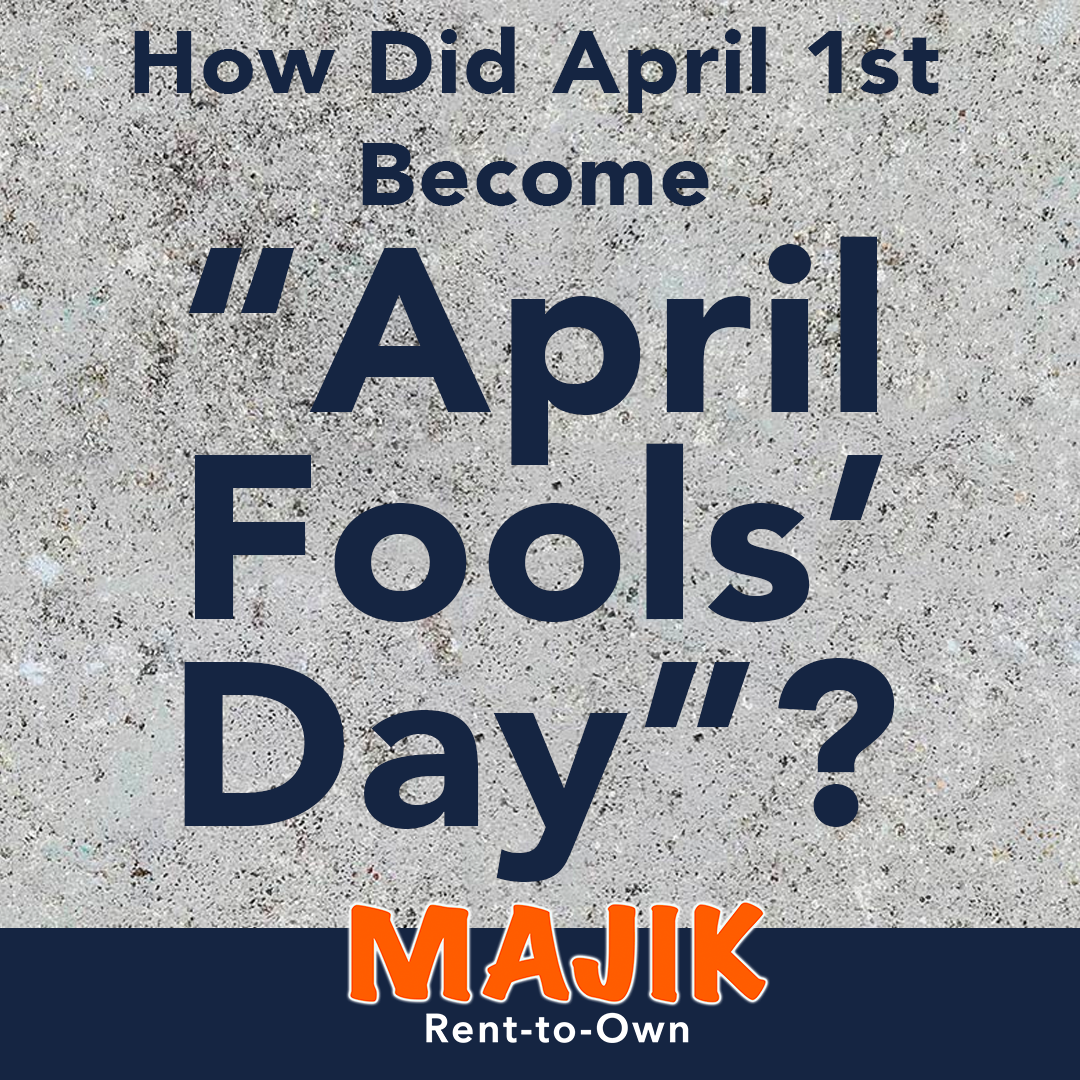
For pranksters and mischievous older siblings all around the world, April Fools’ Day, or All Fools’ Day, is as eagerly anticipated as Christmas.
What other holiday encourages you to think up elaborate hoaxes, swap your spouse’s keys, or trick your friend into thinking their car got towed? But how did this odd, prank-centric holiday come to be celebrated in the first place, and why is it called April Fools’ Day?
Uncertain beginnings
Starting as a custom of sending people on false errands, April Fools’ Day seems to have migrated to England from France in the late 1600s. The true origins of the holiday remain unknown and are probably lost to history, but of course theories abound.
One popular legend is that April Fools’ Day began with France’s 1564 Edict of Roussillon, which decreed that New Year’s Day be moved to January 1st. Depending on which part of France someone lived in back then, they might’ve celebrated the new year on Easter.
Those who continued to celebrate the old New Year were called “April fools” by the January 1 early adopters.
Another theory suggests that April 1st became the fool’s holiday due to Geoffrey Chaucer’s 14th century collection, The Canterbury Tales, wherein Chaucer includes a playful reference to “32 March,” or April 1st. However, most scholars consider it to have been a mere copying error.
The holiday also shares some striking similarities to some long-running antecedents, including the Indian festival of Holi, which ends on March 31st, as well as the ancient Roman festival, Hilaria, held on March 25th.
Where does the apostrophe go?
Technically, the fool in April Fools’ Day is plural … there are a lot people becoming fools on this day. But, the non-standard spelling April Fool’s Day is fairly common and isn’t technically incorrect either.
April fools across the world
Yup, April Fools’ Day is celebrated around the world. Because who doesn’t like playing a friendly prank on their loved ones …. Here are some examples:
In France, the fooled party is called the poisson d’avril, which literally means “April fish.” France’s customary prank involves pinning a paper fish (also called the poisson d’avril) to a friend’s back.
In Scotland, April Fools’ Day is called Hunt the Gowk Day—gowk is another name for the cuckoo, which is a common symbol of the fool. The gowkie pranks continue into April 2, Tailie Day, when celebrants traditionally attach a “paper tail” (or a “kick me” sign) to their friends’ backs.
Brazil celebrates April 1 as Dia da Mentira, or “Lie Day,” in which people try to fool their loved ones. For comedic effect, of course.
It’s similar to the previously mentioned Indian festival of Holi, observed in late March, during which people celebrate the coming of Spring by festively throwing colored powder and water on one another. One Holi tradition is strikingly similar to the ancient European celebration or the Feast of Fools, where people would playfully trade caste, status, gender, and age roles for one day each year.
No matter where you live, the beginning of spring marks a time of lighthearted jesting around the world. Summer is coming.





